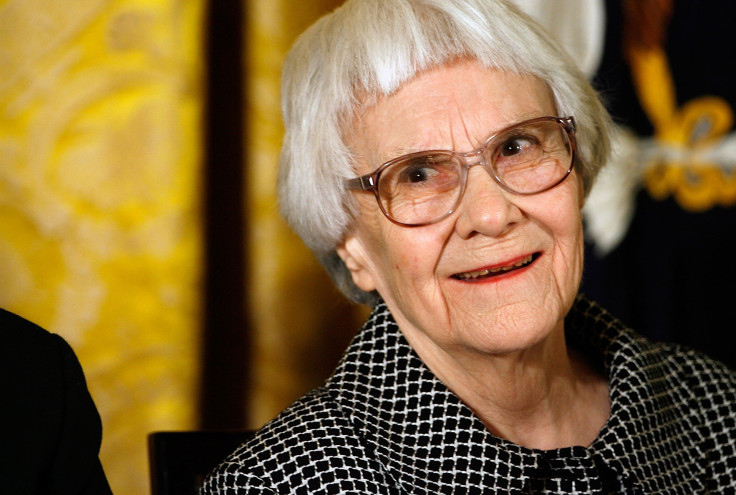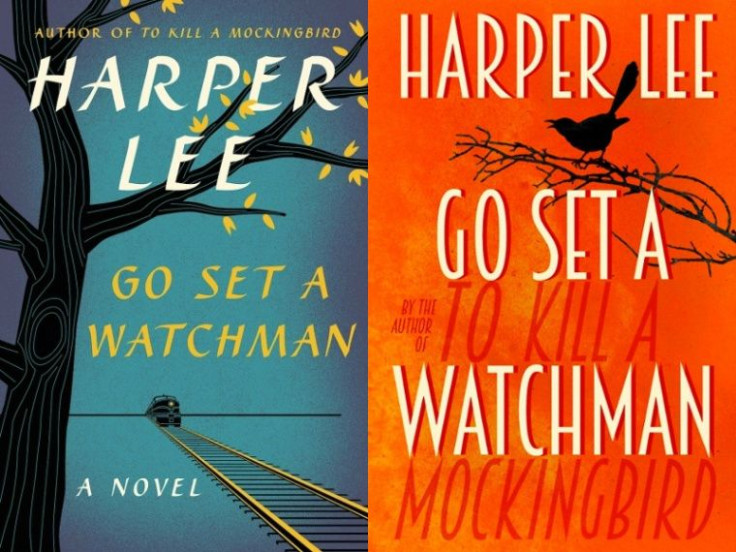'Go Set A Watchman' Reviews: What Critics Are Saying About Atticus, Scout And Harper Lee

It's almost here. "Go Set a Watchman," by "To Kill a Mockingbird" author Harper Lee, will be released Tuesday. While a preview of the first chapter was released in print and audio book -- read by Reese Witherspoon -- the general public has to wait another day to get their hands on it.
"Watchman" was written before the now-classic "Mockingbird," and provided the ideas that turned into the first book. "Mockingbird" was author Harper Lee's only book until the manuscript of "Watchman" was discovered last year.
The forthcoming book has ruffled some feathers both because of Lee's early writing style, but also new information that casts beloved "Mockingbird" characters in a new light.

On Atticus
Perhaps the most surprising news from "Watchman" regards changes in Atticus. "Shockingly … Atticus is a racist who once attended a Klan meeting, who says things like, 'The Negroes down here are still in their childhood as people,'" the New York Times writes.
Noting several racist arguments attributed to Atticus, the Columbus Dispatch put it succinctly: "Those wanting to preserve a vision of Atticus as ahead of his time in civil rights should avoid 'Watchman'."
However, the new Atticus isn’t totally out of character, says Time: "His true heart, expressed in a lengthy debate with Jean Louise [Scout], actually squares neatly with the paternalistic attitude Atticus takes towards black people in 'To Kill a Mockingbird'. .."
"A significant aspect of this novel is that it asks us to see Atticus now not merely as a hero, a god, but as a flesh-and-blood man with shortcomings and moral failing, enabling us to see ourselves for all our complexities and contradictions," the Washington Post writes.
People, Atticus Finch isn't a real person! Read and enjoy the new book. #itsjustabook #harperlee #Watchman
— Neel (@pstate01) July 13, 2015
Re #Watchman & #Mockingbird: Why is Atticus Finch being judged as if he were a real guy living in 2015 & not a lit. character?
— Polly Morrice (@PMorric) July 12, 2015
Whhaaaat? In #mockingbird Atticus is depicted as a fighter for racial equality & justice. In #watchman he's a Klan loving racist!
— afantz (@afantz) July 12, 2015
On Scout
The young protagonist of “Mockingbird,” Scout is grown by "Watchman," and going by her adult name, Jean Louise. However, she grows disillusioned after returning to her native Alabama after living in New York.
"This is the conflict of the novel, Jean Louise’s struggle to come to some accommodation with a father who is not who she believed he was," the Los Angeles Times points out.
The New York Times points out that Scout’s disillusionment in "Watchman" parallels Jem’s disillusionment in "Mockingbird."
Sad. But maybe 'Scout,' like lots of kids, wanted to believe her father was a hero. #Watchman http://t.co/MiGnLmUY0b
— June Winters (@ibidibid) July 11, 2015
So plausible that Atticus was both a good man and flaming racist in Alabama, where I lived at Scout's age #harperlee #mockingbird #watchman
— Sarah Baxter (@SarahbaxterSTM) July 11, 2015
On Lee
Reviews of Lee have been mixed, with some greatly criticizing this early effort. Calling the pace "meandering," the Los Angeles Times goes to call the book a literary artifact but asks the following questions:
How did Lee take the frame of this fiction and collapse it to create "To Kill a Mockingbird," finding a narrative fluency only hinted at within this draft? How did she refine her language, her scene construction, discover a way to enlarge what are here little more than political and social commonplaces, to expose a universal human core?
The New York Times was equally harsh, asking:
How did a lumpy tale about a young woman’s grief over her discovery of her father’s bigoted views evolve into a classic coming-of-age story about two children and their devoted widower father? How did a distressing narrative filled with characters spouting hate speech (from the casually patronizing to the disgustingly grotesque -- and presumably meant to capture the extreme prejudice that could exist in small towns in the Deep South in the 1950s) mutate into a redemptive novel associated with the civil rights movement, hailed, in the words of the former civil rights activist and congressman Andrew Young, for giving us “a sense of emerging humanism and decency”?
Others were more impressed with the book. The book "shakes the settled view of both an author and her novel," the Guardian wrote. "And, unless another surprise for readers lies somewhere in her files, this publication intensifies the regret that Harper Lee published so little."
Considering no one expected this novel to be found, perhaps anything is possible.
© Copyright IBTimes 2025. All rights reserved.






















